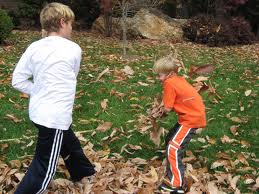Dear Principal
Dear Principal,
This is a letter to you from an “ordinary” mum with an “ordinary” request. I am a mother of a student who has become a “learning disabled child”, although he didn’t appear as such before he went to the school. This is heartbreaking, since being quite sagacious, he could interpret holistically, and do some complex problem solving tasks with hands-on activities but, sadly, he is now perceiving himself as being impaired. Before, he was a content child who had received a lot credit for his enormous natural curiosity, and was much appreciated, which he would courteously reciprocate – he really was, and indeed still is, this “special something” who shows a deep integrity at home. Unfortunately, he has now become an “ordinary” and “tedious” student, who is adopting this quite historical display as the drained, deportee student. That character has indeed existed for decades in the schools – where the label as the “unsettled student” is only a symptomatic demeanour for his busy mind, one that is calling out, and being talkative in the classroom, and which for him is simply a way of camouflaging his shortcomings. He is applying that manner in order to avoid the threatening execution of his integrity among his peers in the school. One could then ask; what exactly then happened to that “special” child? So, dear Principal, could you please test my child within his “lights of potential”, and let his aptitude blossom. We hate that our child’s non-conformity is morally misjudged and that we are constantly criticized for failing to channel our child into the mould of a “normal” sequencing learning style.
Yours truly,
Mom of an ADHD Child

